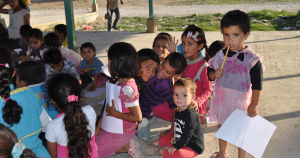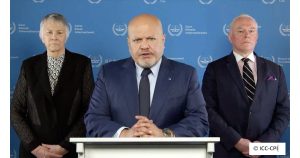Brussels-Rome, 1 February 2021
Today, Myanmar’s military authorities announced a State of Emergency for one year, with all legislative, executive and judicial “independent” powers suspended and transferred to Commander-in-Chief Senior General Min Aung Hlaing. In a series of early morning raids, the military detained several senior members of the ruling NLD, including former Nobel Prize winner Aung San Suu Kyi, as well as many pro-democracy and human rights activists, student leaders and representatives of minorities’ parties and movements. This was the same day on which the new parliament was due to convene for the first time following a General Election in November, which the ruling National League for Democracy (NLD) headed by State Counsellor Aung San Suu Kyi won with more than 80% of the vote amid claims from the military of fraudulent results. The actions were all too reminiscent of the days of almost 50 years of rule under oppressive military regimes before the so-called move towards democratic rule in 2011 that many Burmese citizens hoped they had left behind.
The coup triggered a chorus of condemnations and calls to re-establish the rule of law and abidance to the democratic aspirations of the Myanmar people by the international community. No Peace Without Justice shares the concerns for the safety and security of those arrested and taken into custody as well as for the utter disdain for the democratic elections’ outcomes. There is no doubt that there needs to be a restoration of the new parliament and accountability for the current repressive actions. We hope that today’s United Nations Security Council underscores this message and takes concrete action to achieve those aims.
Nonetheless, we cannot close our eyes to the roots and origins of today’s events, which are also the result of previous and ongoing egregious violations that occurred so far with total impunity. Since 2011, it seems clear that the military has kept a relatively tight grip on Myanmar’s institutions, thanks to constitutional provisions that guarantee control of the country’s parliament and most powerful ministries. It is also clear that the ruling NLD and it leader Aung San Suu Kyi have lamentably turned their backs on respect for human rights since taking (or rather sharing) power, betraying promises to Myanmar’s people to revoke repressive laws and break with abusive past practices.
Not only did the NLD-ruled government miss the opportunity to introduce and enact significant democratic reforms reforms that would protect free speech and assembly, it has also repeatedly violated basic civil and political rights, by censoring opposition party, activists, journalists and critics’ messages and impeding equal access to state media, notably during the last electoral campaign.
Critically, it also failed to hold the country’s security forces accountable for atrocities committed against ethnic minorities and civilians, notably against the Rohingya, which led Myanmar to face a lawsuit submitted by Gambia accusing it of genocide at the International Court of Justice (ICJ), while the International Criminal Court (ICC) is investigating crimes against humanity committed against the Rohingya in Myanmar, spilling over into Bangladesh. Seeing the once consecrated beacon for freedom and human rights defending or minimising the Myanmar army’s abuses perpetrated against the Rohingya at the ICJ hearing in December last year was extremely disappointing and shocking. It proved to be a breaking point for the international reputation of Aung San Suu Kyi, leading – among others – the European Parliament to exclude her from the Sakharaov prize community, an award she received in 1990 for embodying freedom of thought and fight for democracy in her country.
Not valuing and practicing democracy, the rule of law and the respect of human rights should not be without consequences, particularly for those elected by the people to govern on their behalf. NPWJ looks forward to the people of Myanmar being the masters of their political future, not its victims. At this difficult and challenging time, we also call on the international community to take all appropriate and necessary measures and actions to safeguard rights and well-being of Myanmar’s whole population without distinction and ensure accountability for past and present crimes and violations perpetrated against them.




